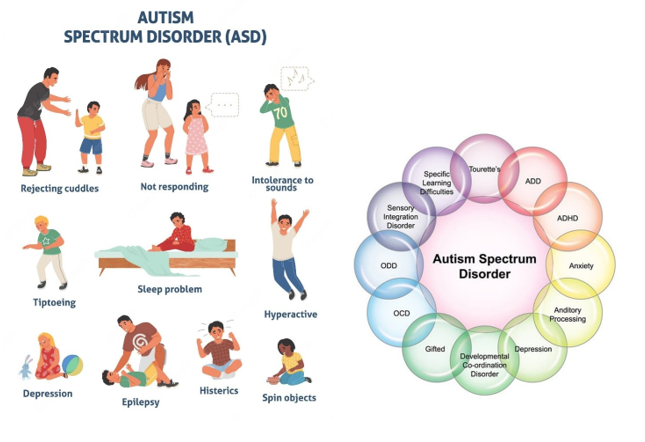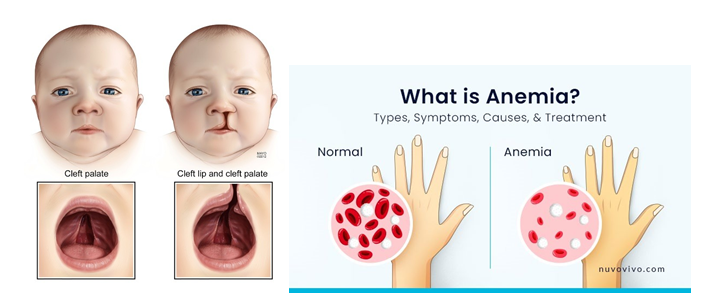The nurse is caring for a toddler with autism spectrum disorder and failure to thrive. Which intervention should the nurse implement?
Provide structured meal times.
Offer food even if disinterested.
Incorporate play during meals.
Allow multiple food choices.
The Correct Answer is A
Children with autism spectrum disorder may have difficulty with sensory processing, social interactions, and communication, which can contribute to feeding difficulties and failure to thrive. Providing structured meal times is an important intervention to help establish a routine and promote consistency and predictability.
Structured meal times involve setting a specific time for meals and snacks, providing a calm and quiet environment, and limiting distractions. This can help the child focus on the task of eating and reduce sensory overload that may interfere with feeding. The nurse should also ensure that the child is seated comfortably and at an appropriate height for feeding.
Offering food even if disinterested (B), incorporating play during meals (C), and allowing multiple food choices (D) are not necessarily helpful interventions for a toddler with autism spectrum disorder and failure to thrive. Offering food when the child is not interested may reinforce negative feeding behaviors and can contribute to further feeding difficulties. Incorporating play during meals may distract the child from the task of eating and can be counterproductive. Allowing multiple food choices can be overwhelming for the child and may not promote a consistent and structured feeding routine.
Therefore, the nurse should prioritize providing structured meal times as an important intervention for promoting feeding and growth in a toddler with autism spectrum disorder and failure to thrive.

Nursing Test Bank
Naxlex Comprehensive Predictor Exams
Related Questions
Correct Answer is D
Explanation
To ensure the cooperation of a preschooler during an assessment of lung sounds, the nurse can allow the child to use a stethoscope on a stuffed animal. This helps the child understand what is happening and feel more comfortable with the procedure. Having the child blow a cotton ball (A), placing a toy in the child's hands (B), and offering bubbles (C ) may distract the child but do not directly involve them in the procedure.

Correct Answer is C
Explanation
Answer: C. Red blood cell count of 2.3 cells/mcl or (2.3 x 10/L).
Rationale:
A. White blood cell count of 10,000/mm³ (10 x 10⁹/L): This is within the normal range for an infant, indicating no immediate concern for infection or immune response. It does not need to be urgently conveyed to the surgeon.
B. Weight gain of 2 pounds (0.91 kg) since birth: This is a positive sign indicating healthy growth and nutritional status, but it is not a critical concern that would affect the immediate surgical plan.
C. Red blood cell count of 2.3 cells/mcl or (2.3 x 10⁹/L): This low RBC count indicates anemia, which is critical information for the surgeon. Anemia can increase the risk of complications during and after surgery due to potential issues with oxygenation and healing, making it the most important information to convey.
D. Urine specific gravity is 1.011: This indicates normal hydration status and is not immediately relevant to the surgical procedure. It does not need to be urgently reported to the surgeon compared to the low RBC count.

Whether you are a student looking to ace your exams or a practicing nurse seeking to enhance your expertise , our nursing education contents will empower you with the confidence and competence to make a difference in the lives of patients and become a respected leader in the healthcare field.
Visit Naxlex, invest in your future and unlock endless possibilities with our unparalleled nursing education contents today
Report Wrong Answer on the Current Question
Do you disagree with the answer? If yes, what is your expected answer? Explain.
Kindly be descriptive with the issue you are facing.
